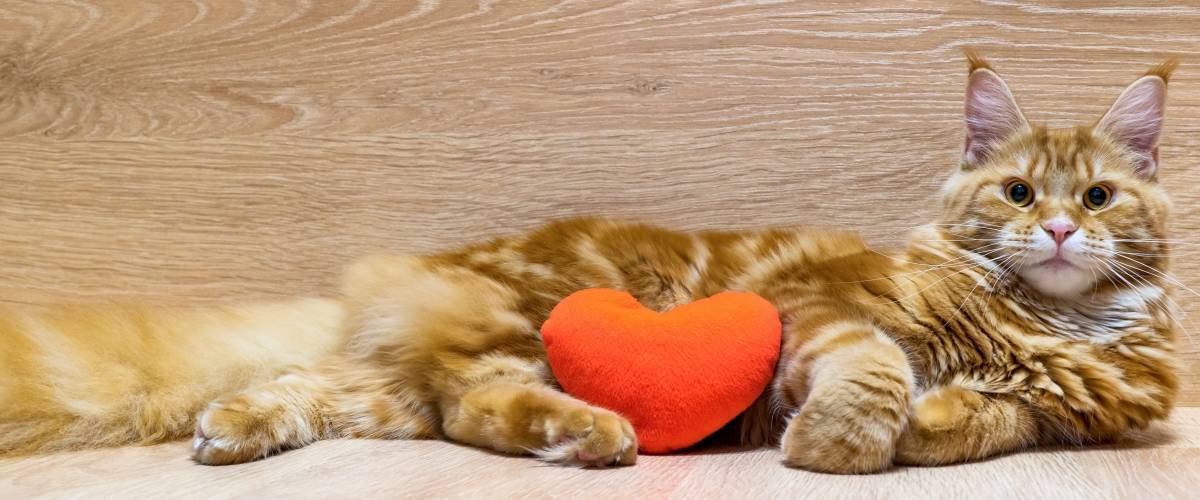
Updated February 29, 2024 – Ask any cat owner, and they’ll be the first to admit that cats are mysterious creatures! When it comes to illnesses, cats are masters at concealing they may not feel up to snuff.
It might come as a surprise to learn that cats can suffer from heart disease – and that it might be more common than previously suspected.
Knowing the most common signs that your cat might have a heart condition is critical. Cat owners must watch for five signs in their furry friends. (If you need more information on heart function and disease basics, check out our new blog).
- No signs at all: Yup, you’re reading that right – the most common sign is no sign. We realize this is a bit of a trick, but the sad truth is that many cats show no signs until their heart disease is advanced. However, there are exam findings that can clue your veterinarian in that your cat might have heart problems. Although not always easy, it is so important that cats are examined at least once a year by a veterinarian.
- Lethargy and anorexia: Cats with heart disease will tire out more quickly when playing or active. They may sleep or rest more than usual. Poor appetite is a common sign of cat health issues, including heart disease.
- Difficulty breathing: Cats with heart disease can have trouble breathing (dyspnea). A cat may breathe more rapidly or with more force. Some cats will sit or stand with their legs wide apart. Cats with fluid accumulation in their chest have more trouble breathing when lying down and will often sit or stand for long periods with difficulty settling down.
- Sudden collapse/inability to use hind legs/pain: Cats with heart disease are prone to forming blood clots that commonly lodge in blood vessels going to the rear legs, an extremely painful event called arterial thromboembolism. For some cats, this is the first sign of a heart condition.
- Behavior changes: Pet owners may also see behavior changes in cats with heart disease, including isolation and a reluctance to play or engage in previously pleasurable activities.
(Learn more about hypertrophic cardiomyopathy, the most common heart disease diagnosed in cats and arterial thromboembolism).
Tests Helpful in Heart Disease Diagnosis
- Chest X-ray: X-rays remain an excellent way to assess heart size and one of the best methods to assess fluid buildup in and around the lungs.
- Echocardiogram: An echocardiogram is an ultrasound of the heart and is hands down the best diagnostic test for heart disease in cats. An echocardiogram performed by a skilled veterinarian can provide valuable information about disease and measurements to assess therapy.
Although heart disease in cats can be severe, many treatment options are available to help control symptoms and help your cat live a higher quality life. Your veterinarian can help select the best treatment options for your furry friend.
How We Are Helping
Morris Animal Foundation was one of the first to fund research focused on feline heart disease in 1986! Since then, we’ve given $1.5 million to fund 30 studies on all aspects of feline heart disease – from learning about the best anticoagulant therapy for cats with heart disease (FAT CAT) to ground-breaking research focused on hypertrophic cardiomyopathy in cats (The REVEAL Study). And that’s just the beginning!
These studies would not be possible without the help of our passionate donors. Because of their dedication, we’ve made lots of progress in helping cats with heart disease, but each year, too many cats still die from heart disease and arterial thromboembolism. Learn more about what you can do to help cats with heart disease thrive.
Resources




